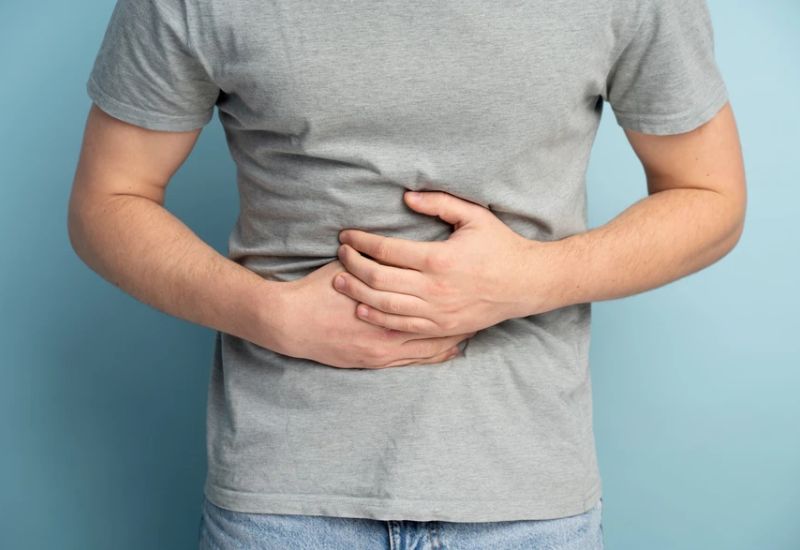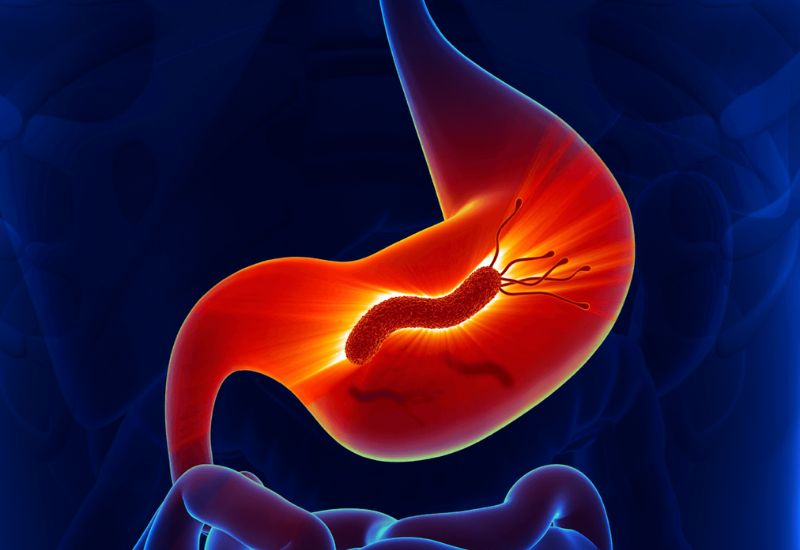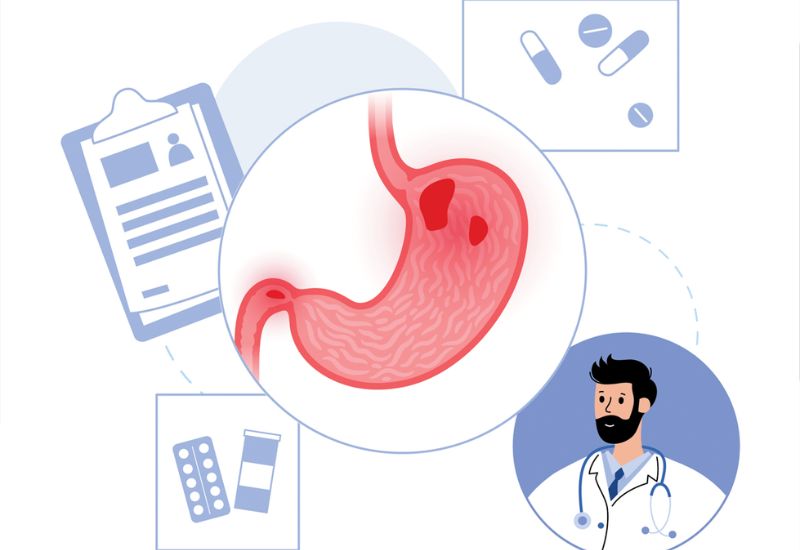Peptic ulcer disease (PUD) is a common digestive condition caused by various factors and influences. Symptoms can vary significantly from person to person, and in some cases, there may be no clear symptoms, leading to potential misdiagnosis. Understanding the signs and causes of peptic ulcer disease is crucial for timely diagnosis, effective treatment, and prevention of complications.
1. Basic Understanding of Peptic Ulcer Disease
Peptic ulcer disease occurs when the protective mucosal lining of the stomach is eroded, exposing the underlying tissue. Previously more common in the elderly, the condition is increasingly affecting younger individuals.
2. Symptoms of Peptic Ulcer Disease
The symptoms of peptic ulcer disease can vary. In the early stages, some patients may not exhibit clear symptoms, leading to confusion with other digestive issues. However, most patients will experience some common symptoms.
2.1. Epigastric Pain
A hallmark symptom of peptic ulcer disease is pain in the upper abdomen. The pain can range from mild to severe, depending on the ulcer’s severity.

Peptic ulcers often cause pain in the upper abdomen.
2.2. Bloating, Indigestion, Nausea
Peptic ulcer disease often causes increased acid production, leading to acid reflux and nausea. Patients may feel uncomfortable, bloated, and have difficulty digesting food, resulting in belching and loss of appetite.
2.3. Belching and Burning Sensation
These symptoms are common, especially in the early stages of the condition, causing discomfort and heartburn.
2.4. Digestive Disorders
Ulcers can disrupt the function of other digestive organs, leading to symptoms like alternating diarrhea and constipation.
2.5. Loss of Appetite and Sudden Weight Loss
Patients often feel full or have a bitter taste in their mouth, reducing their desire to eat. Additionally, the body may not fully metabolize food, leading to nutritional deficiencies and weight loss.
3. Primary Causes of Peptic Ulcers
Peptic ulcer disease can result from various causes, often linked to unhealthy habits.
3.1. Helicobacter pylori (H. pylori) Infection
H.pylori bacteria can live in the stomach lining’s mucus layer. Under favorable conditions, they produce toxins that impair the mucosal lining’s ability to resist acid.
3.2. Long-term Use of Anti-inflammatory and Pain Relief Medications
Prolonged use of these medications can inhibit substances that protect the stomach lining, making it susceptible to ulcers.
3.3. Stress
Negative mental states such as sadness, anxiety, and stress can significantly impact the stomach, causing imbalances and excessive stomach acid production, which can erode the mucosal lining.
3.4. Poor Eating and Lifestyle Habits
Irregular eating habits, such as skipping meals or overeating, can disrupt stomach function, leading to reduced efficiency and increased acid production, damaging the mucosal lining. Other causes include autoimmune responses and chemical exposure.

Peptic ulcers are an increasingly common gastrointestinal condition.
4. Serious Complications of Peptic Ulcer Disease
While peptic ulcer disease is common and not inherently dangerous, untreated ulcers can lead to severe complications.
4.1. Gastric Bleeding
Gastrointestinal bleeding is a frequent complication, marked by symptoms like vomiting blood or coffee-ground-like material and black, tarry stools. Prolonged bleeding can cause significant blood loss, leading to low blood pressure, weakness, and fainting.
4.2. Stomach Perforation
An ulcer can erode the stomach lining, causing perforation. This can lead to peritonitis, a life-threatening condition. Symptoms include severe, stabbing abdominal pain and a hard, tense abdomen.
4.3. Stomach Cancer
Patients with H. pylori infection have an increased risk of stomach cancer, a serious complication with no definitive cure.
4.4. Gastric Outlet Obstruction
Ulcer scars can cause the stomach outlet to narrow, leading to symptoms like frequent vomiting, especially later in the day or several hours after meals, persistent bloating, and loss of appetite.
5. Treatment Methods
Peptic ulcer disease can be treated through various methods, depending on the cause and severity. Treatment often involves a combination of medication and lifestyle changes for optimal results.

Patients can use multiple methods for treatment.
5.1. Medication
Note: Patients should not use any medication without a doctor’s approval.
Before treatment, patients should visit a healthcare facility for a detailed examination. Based on the results, doctors may prescribe:
– Antibiotics for H. pylori infection
– Acid-reducing medications
– Proton pump inhibitors
– Protective agents for the stomach lining
5.2. Lifestyle and Dietary Adjustments
Lifestyle changes can enhance treatment effectiveness. Patients should:
– Increase intake of vegetables, whole grains, and fruits
– Avoid harmful substances like tobacco and alcohol
– Limit late nights
– Manage stress and maintain a positive outlook
– Eat regular meals
– Avoid spicy, processed, and greasy foods
– Choose soft, easily digestible foods
Understanding peptic ulcer disease helps in timely detection and treatment. Early intervention can prevent dangerous complications and promote better health outcomes.








